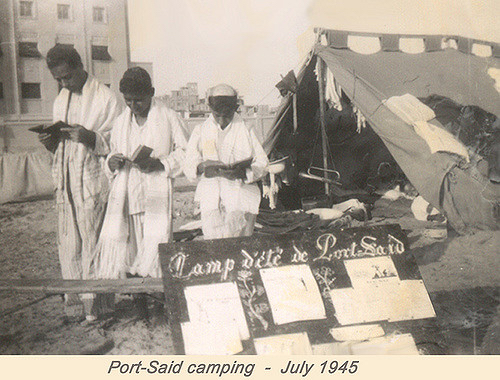Every so often, I write a column, and have to immediately update it. This was what happened last week, so I decided to revisit its topics: the Protestant churches’ letter to Congress about US military aid to Israel, and the scandal over anti-Semitism in the Free Gaza Movement. I’ll start by admitting I was wrong about Greta Berlin.
As I said, I have limited experience of Berlin. But this was the first time I had seen her behave in a manner that could be called anti-Semitic, so I was prepared to believe that the tempest she stirred up was accidental, as she claimed, and as she convinced several people I respect it was. Thankfully, a long time Palestine solidarity activist, Bekah Wolf, who had left the Facebook group that Berlin administrates, managed to regain membership in order to report on it. What she found leaves little doubt of its hatred of Jews and what is, in the kindest possible interpretation, a tolerant and open attitude to anti-Semitism by Greta Berlin, and the other group administrators.
The comments by one individual with whom I have had many unpleasant dealings that leave no doubt of his paranoid anti-Semitism, and the various words of support for the unabashed anti-Semitism of Gilad Atzmon (whose essential thesis is that Israel cannot be anything but a human rights abuser not because of its politics, or the conflict or even Zionism, but simply because it is run by Jews, and the nature of Judaism can lead to no other possible result) leave little room for doubt about the folks in that group. These findings, combined with the disingenuous explanations she offered, make it clear why Palestinian activist leaders and solidarity advocates have so harshly condemned Greta Berlin, and her followers. As Wolf puts it:
“As an anti-Zionist Jew who has been active in Palestine for 10 years, Greta Berlin’s statements and the content of “Our Land” not only offend me, but they have damaged my ability to combat Zionist rhetoric by claiming that I cannot be both religiously Jewish and anti-Zionist. Zionists routinely argue that to be Jewish is to be Zionist and the kind of rhetoric displayed on “Our Land” concedes this important point and supports this fundamental Zionist claim. In addition, this episode regarding Berlin’s tweet has damaged our movement as a whole and has shown deep short-sightedness by opening us up to attack and dismissal by Zionists who are desperately trying to paint us as a movement as anti-Semitic. Palestinians have not asked the solidarity movement to concern itself with notions of Jewish identity, authenticity, and the Holocaust, but to offer active and effective solidarity in restoring their rights in their country.”
Five years ago, I ended my involvement with the Palestine Solidarity Movement because, as someone who is not an anti-Zionist, too much of the politics didn’t match my own and the small minority of individuals who brought anti-Semitism into its ranks was intolerable, despite concerted efforts by the vast majority to keep them out. Nonetheless, Wolf characterizes the movement correctly, though, from my vantage point, it seems that still more conspiracy theorists and haters have wormed their way into the mix as of late – as evinced by the Berlin affair. And, I’ll reiterate that, as this incident demonstrates again, those haters are rarely Palestinian, or even Arab.
But the new evidence against Berlin was far from the only new instance of anti-Semitism. In response to fifteen prominent and mainstream Christian leaders writing a letter to Congress asking it to ensure that US arms sold or provided to Israel are used in compliance with the Arms Export Control Act and Foreign Assistance Act, the increasingly out of touch (and self-appointed) “leadership” of the US Jewish community went apoplectic. In so doing, they both contradicted a central tenet of Theodor Herzl’s Zionism – that Israel should be a “state like any other” – and fomented anti-Semitism, by insisting on maintaining the special treatment Israel gets. Even the most cursory analysis of the history of European anti-Semitism demonstrates just how dangerous this is.
This week, both rightwing and allegedly liberal Jewish groups stepped up their attack, with the Jewish Council for Public Affairs (JCPA) dropping all pretense and accusing the church leaders and their constituents, ironically, of anti-Semitism. The churches who signed the letter’s “… stony silence to the use of anti-Judaism and relentless attacks on the Jewish state, often from within their own ranks, speaks loudly to their failure to stand up and speak the whole truth about what is occurring in the Middle East,” JCPA wrote, announcing their pullout from an interfaith dialogue conference.
As harmful as that is to Jewish interests, the actions of the self-proclaimed “pro-Israel, pro-peace arm of the Israel Lobby,” J Street were far more destructive to any hope of resolving the conflict between Israelis and Palestinians. As they did this past summer, J Street decided it could not stand aside, but felt that it had to speak out against Christians trying bring the conflict to a peaceful resolution. And, as it was this past summer, J Street did so dishonestly.

Writing in the Daily Beast, J-Street’s Rachel Lerner offered the same argument as the JCPA and Anti-Defamation League: that the Christian letter was lacking in nuance, one-sided, and did not address Palestinian wrongdoing. The problem is that every one of those assertions is demonstrably false. Contrary to Ms. Lerner’s assertions, the letter from the Christian leaders explicitly equates Israeli and Palestinian suffering, something even the letter’s supporters have played down:
“Through our presence in the region, and regular visits to our partners there, we see first-hand the impacts of the conflict on both Palestinians and Israelis and hear from them directly about the reality of their lives… Through this direct experience we have witnessed the pain and suffering of Israelis as a result of Palestinian actions and of Palestinians as a result of Israeli actions. In addition to the horror and loss of life from rocket attacks from Gaza and past suicide bombings, we have witnessed the broad impact that a sense of insecurity and fear has had on Israeli society. We have also witnessed widespread Israeli human rights violations committed against Palestinians, including killing of civilians, home demolitions and forced displacement, and restrictions on Palestinian movement, among others. We recognize that each party—Israeli and Palestinian—bears responsibilities for its actions and we therefore continue to stand against all violence regardless of its source. Our stand against violence is complemented by our commitment to the rights of all Israelis, as well as all Palestinians, to live in peace and security.”
The churches’ letter couldn’t be any clearer. It’s not one-sided, it doesn’t privilege Palestinian over Israeli suffering, and it doesn’t omit Palestinian attacks on Israeli civilians. Indeed, the letter is thoroughly nuanced. It is Lerner’s response that is devoid of the truth, and of the nuance she claims the Christian document lacks.
It is beyond credulity that Ms. Lerner, whom I know to be an intelligent and thoughtful person, or her boss, Jeremy Ben-Ami, who has worked inside the Beltway for decades, didn’t read the full text of the letter. But it is telling that the Daily Beast piece links not to the letter, but to a Jewish Telegraphic Agency summary of it. There isn’t a doubt that this was willful deceit.
I understand why J Street did it. Despite having repeatedly proven itself to be far more pro-Israel than pro-peace, it is still attacked by the Jewish right, and groups like JCPA and ADL. American aid to Israel is sacrosanct in the organized Jewish community. It was the fundamental reason for AIPAC’s existence before it became so powerful. It has always been the one point that could not be touched in the US. If J Street had stayed silent, much less supported the letter, conservative groups would have had the leverage they needed to further marginalize it.
The problem remains that such serial obstructions of efforts to change the imbalance in power – created not only by Israel’s military superiority over the Palestinians, but even more by the “unshakable” support of the world’s only superpower – allows Israel to violate US law, and Palestinian human rights, on a daily basis. More to the point, it helps prevent any possibility of a more constructive US role in the conflict.
The churches’ letter made a very simple request: treat aid to Israel the same as all other foreign military assistance , as required by US law. It is not asking that Israel be singled out, nor, as J Street and the other groups claimed, that aid to Israel be reviewed or reconsidered. It just asked Congress to follow the law it made.
I agree with Ms. Lerner that US aid to Israel ought to promote stability in the region. It certainly helps deter attacks on Israel, and that is a good thing, which, once it replaced French assistance, helped eventually end the era of inter-state warfare that characterized the first 25 years of Israel’s existence. However, giving the Israeli government carte blanche, to do as it pleases, cannot promote peace.
Saying that no matter what Israel does, irrespective of how it behaves, regardless of how often it defies White House policies and US law, that it can still count on American support, has the opposite effect. Indeed, it has encouraged Israeli adventurism in Lebanon and Gaza, and it has enabled Israel to comfortably, and at relatively low cost, maintain it’s occupation of the Palestinian territory.
If J Street agrees that is not desirable, then it cannot oppose Israel obeying US law. Yet it does, and I believe it is for the reasons stated above. J-Street wants to be seen as credible inside the Beltway, and as the voice of the majority of US Jews, and so it believes it must defend US aid to Israel as being immune to both US law and to Israeli abuses of that aid. But in the last analysis, no organization can take this fundamental stand and still change US policy.
Why? Because while J Street claims it wants “robust” US leadership to bring both parties to an agreement, it consistently opposes all material pressure on Israel. Like Republican candidate Mitt Romney, J Street keeps repeating its talking point, but when it comes to specifics, it falls silent and changes the subject. Just what, one must wonder, do they want the Obama Administration to do? Add another “pretty” to the “pretty, pretty please” that they advocate? Give Israel more support until the next round of negotiations? All of these courses have failed repeatedly and disastrously. And, one must add, predictably.
Israel is a country, like any other. It does not take political or security risks, nor does it surrender valuable assets simply because it’s the right thing to do. There has to be political pressure to bring about such an undertaking by Israel, as would be required under any peace agreement. Israeli Prime Minister Benjamin Netanyahu is not only aware of this. He does everything he can, within political constraints, to make this clear to the world.
And Bibi’s right to do so, according to his point of view. Why should Israel take a major security risk by freeing Gaza, pulling out of the West Bank, or granting its Arab residents citizenship? Why would any Israeli leader avail themselves to the political fallout of such an undertaking? Even a Prime Minister willing to undertake a peace agreement, which Netanyahu certainly is not, needs some political force to justify such programs, and to defend their actions.
J Street is contributing to preventing any such thing from happening. It is, in fact, helping to prevent the US government from having any leverage over Israel, at all. That J-Street has been pushed in this direction was predictable. However, in the end, an organization that sacrifices is own raison d’etre to maintain its purported political viability, and its donor base, is betraying its mandate.
I still support J Street for its efforts to slow down an Israeli war with Iran. It’s the only Jewish organization with any real clout, that has consistently taken such a stand. But, as with its response to the Protestant aid initiative, J-Street’s steadfast defense of Israeli exceptionalism ultimately dooms it to irrelevance. We don’t need a kinder and gentler AIPAC. We need a genuine peace advocacy organization that reflects the desires of American Jewry, indeed of Americans in general, who still support Israel, but also support the US using its ability to pressure Israel for peace.
Photographs courtesy of Joel Schalit






Why wouldn’t you point out that J Street’s betrayal of peace leaves Jewish Voice for Peace as the most substantial and consistent Jewish organization promoting Palestinian-Israeli peace on the basis of self-determination and equality of rights for Jews and Arabs? You do note that J Street’s failure was predictable, though perhaps you intended it in a narrower sense than I would suggest: any organization or individual whose primary point of departure is “pro-Israel” can’t be a force for peace because that self- definition privileges Israel over Palestine and Jews over Arabs. “Pro-Israel is another way of saying “Zionist.” It would take more space than is available here to do justice to the great variety of Zionist thought while demonstrating that ultimately no currents within Zionism have been able to get beyond good intentions to build a political force that might actually bring about a peaceful resolution of the conflict (for the historically minded see my book, Was the Red Flag Flying There?). Only a perspective that is equally “pro-Israeli” and “pro-Palestinian” – or more simply based on human rights and international law is capable of bringing about peace with a modicum of justice. As you note, J Street isn’t interested in Israel being subject to the same norms that ought to (but unfortunately don’t always) apply to other states. So J Street ultimately has only a very limited contribution to make to building Palestinian-Israeli peace. That contribution, crudely speaking, is that it can be a halfway house towards more consistent positions, like those of Jewish Voice for Peace.
Joel, in answer to your opening question, this article isn’t about JVP, it’s about J Street. Also, until JVP gets into electoral politics, they’re playing in a different arena than J Street. So, presenting JVP as an alternative in this context doesn’t really apply. But if you look back at my articles on this site and others, I think you’ll find I’ve made the point you suggest about JVP numerous times in a variety of ways.
The following sentence doesn’t quite work:
“But in the last analysis, any organization that cannot take this fundamental stand, and still change US policy.”
I’m not trying to be White and Strunk here. It is actually a bit difficult to discern exactly what you’re trying to say.
Thanks, Alan, the foibles of rounds of editing, I’m afraid. The post has been updated and the sentence now reads “But in the last analysis, no organization can take this fundamental stand and still change US policy.” Makes sense now, right? Thanks again…
On initially reading the above article my first impressions of the following sentence, since you cite my blog, was that it referred to me! In fact I have documented quite assiduously Atzmon’s move from anti-Semitism of a nudge nudge, wink wink variety to being an open holocaust denier, made me think I was being referred to! I’m still not quite sure what the sentence ‘The comments by one individual with whom I have had many unpleasant dealings that leave no doubt of his paranoid anti-Semitism, and the various words of support for the unabashed anti-Semitism of Gilad Atzmon…’ means. I assume that the ‘one individual’ is Atzmon and that it is merely badly phrased.
I should add that I was initially taken in by Greta Berlin’s initial defence but Ali Abunimah and Mondoweiss’s posts convinced me that she was indeed anti-Semitic.
Tony, the person in question is neither you nor Atzmon, but a particular troll with whom both the editor and myself have had dealings. Avoiding naming him is a way to try to avoid more trolling, that’s all. You were cited precisely because I think you’ve done the best work tracking Atzmon’s anti-Semitism.